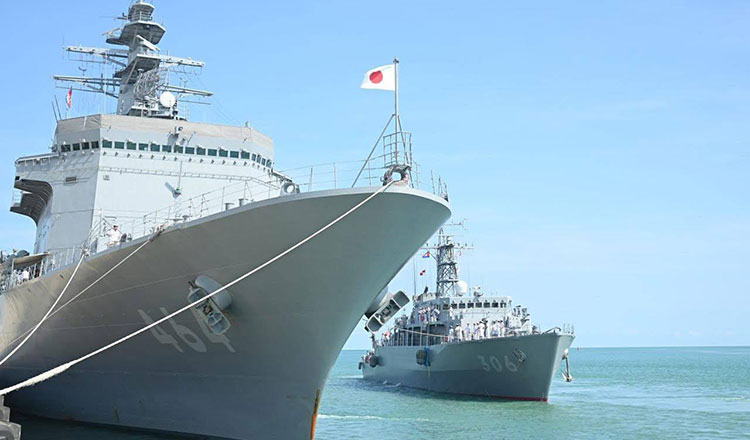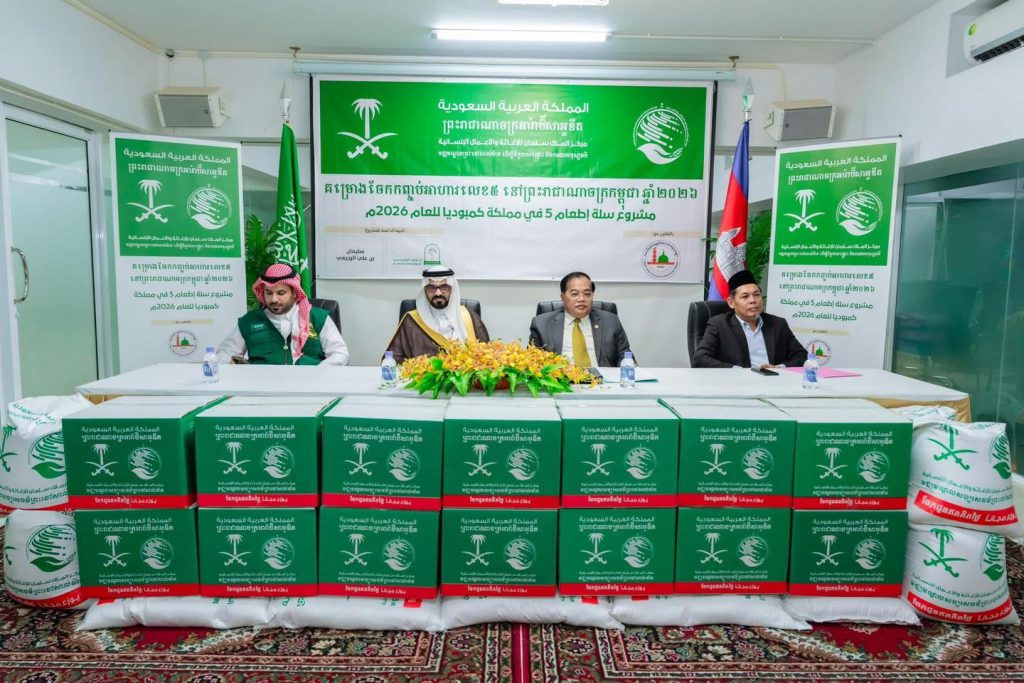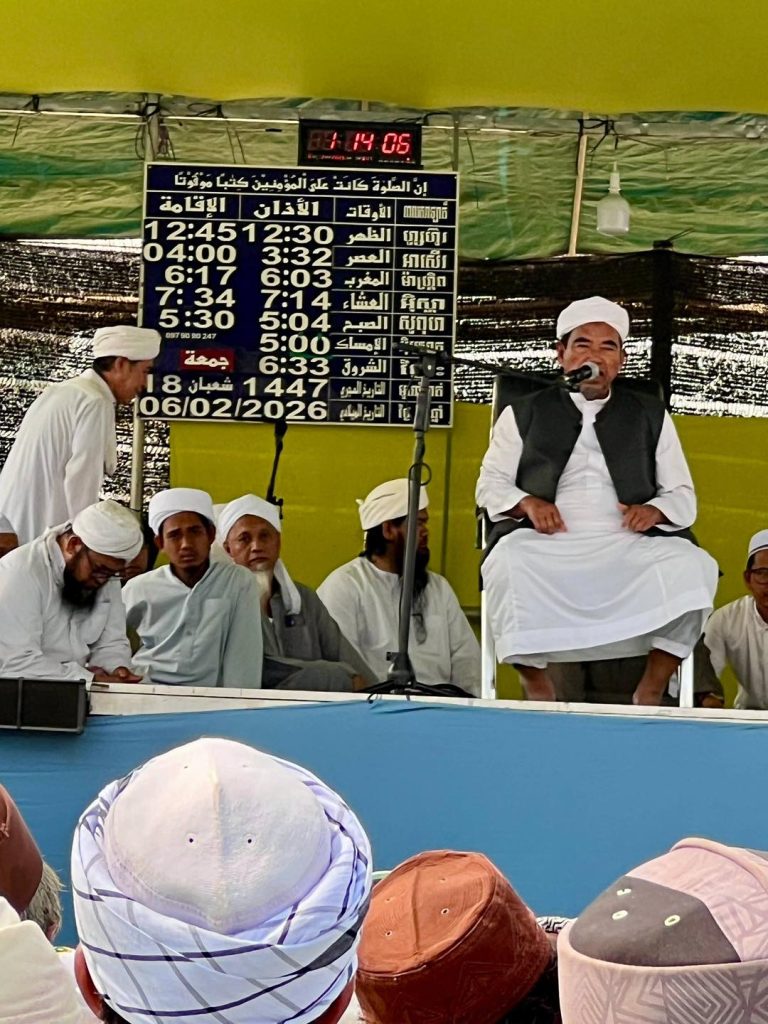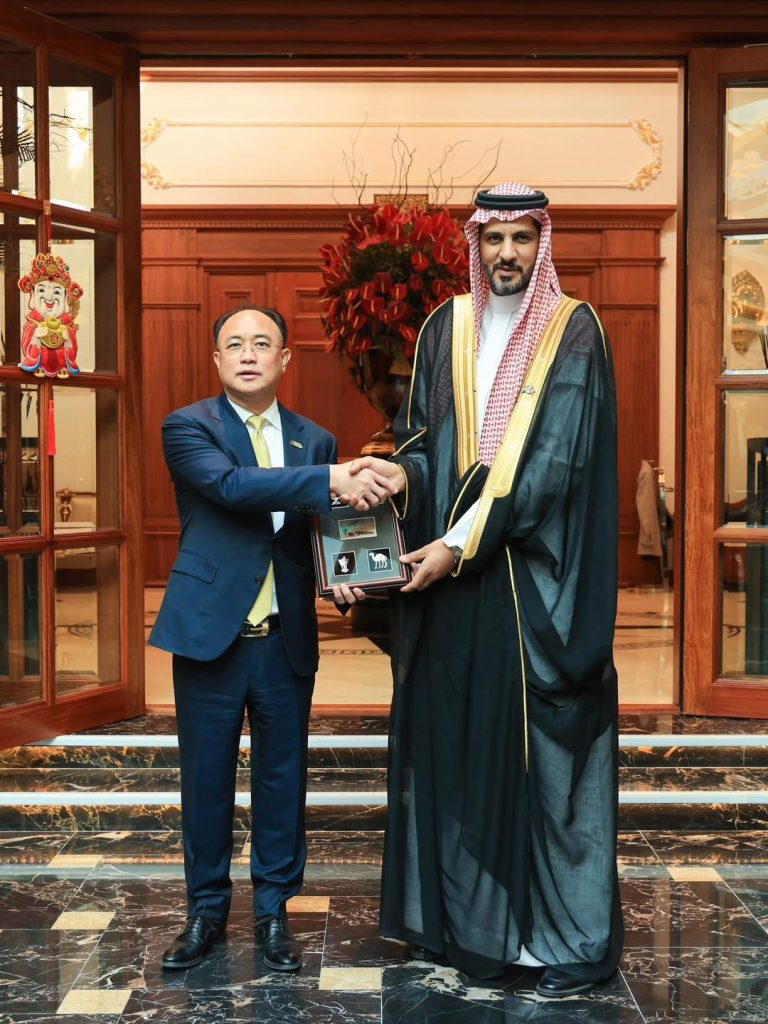
Ream Naval Base port diplomacy pays dividends


The visits marked the first foreign naval presence at the port since Prime Minister Hun Manet declared it open to warships from all friendly countries, amid concerns over Chinese personnel activities while Cambodia reiterated that the base is under Cambodian sovereignty.
Amid ongoing concerns from some nations that the base could grant exclusive access to the Chinese military, the vessels JS Bungo and JS Etajima made a port call at Ream on April 19, followed by a call by a Vietnam People’s Navy ship.
The visit marked the first time foreign warships had docked at the base since its recent upgrade, funded with Chinese support. Commanded by Captain Shinsuke Amano, the ships were on a goodwill mission and remained at the base until April 22
Speaking to Southeast Asian journalists during a visit to the JMSDF’s Yokosuka Naval Base, Nishio Minoru, Head of the Administration Department at Yokosuka District Headquarters, highlighted the significance of the port call by JS Bungo and JS Etajima to Ream Base, saying it was “significant”.
“I hope that the relations between the two countries will continue to improve in the future,” he responded to a Khmer Times question.
He noted that the MSDF is also cooperating with other countries like Vietnam, Malaysia, and Singapore, adding that through such collaboration, he believes the region can become more stable.
“We know that there is a relationship between Cambodia and China. But what matters is whether the port is open or not. So, this time, the Cambodian government decided to open the port to other countries,” said a senior official from Japan’s Ministry of Defence. “And so, we highly evaluate the decision… we expect that other countries’ vessels can visit the port in the future.”
Following the port call from Japan, the Vietnam People’s Navy Ship 261 also docked at the base for a three-day visit in April, aimed at strengthening the ties of solidarity, friendship, and cooperation between the two countries’ navies.
The arrival of the Japanese vessels marks a milestone, as they are the first foreign ships to dock at the Base following its recent modernisation. The upgrade, carried out with Chinese assistance, has drawn scrutiny from some Western countries, who fear the facility could be used for Chinese military purposes.
In a recent statement, Mr Hun Manet said the completion of the base symbolises the deepening partnership between Cambodia and China, contributing to the strengthening of Cambodia’s national defence, security, and public order.
He added that the base would enhance naval operations, bolster maritime security, safeguard natural resources, and support joint exercises with friendly nations, while also helping to combat maritime crimes.
Addressing speculation that the base might fall under Chinese control, Mr Hun Manet firmly denied such claims, reiterating that the facility remains under Cambodia’s full sovereignty, with no foreign power granted authority over it.
According to a joint statement between Japan and Cambodia, issued following Mr Hun Manet’s visit to Japan in May, Mr Hun Manet welcomed the “goodwill” visit to the base by JMSDF vessels from April 19 to 22, marking the first foreign naval ships to call at the port following its completion of renovation — a move which Japanese Prime Minister Shigeru Ishiba highly appreciated.
“Considering the long-standing exchanges between the Royal Cambodian Army and the Japan Ground Self-Defense Force (JGSDF), the two Prime Ministers expressed their intention to further advance cooperation in the security field,” said the statement.
Mr Hun Manet also expressed his intention to make Ream Naval Base open for port calls by friendly countries, the statement added.
The JMSDF visits were significant not only as a symbolic gesture but also amid wider regional anxieties over maritime security, the role of great powers, and the modernisation of naval capabilities. RNB, which has undergone substantial Chinese-backed renovations, has been subject to scrutiny by the US and other countries concerned about the strategic implications of its use in the contested South China Sea.
When asked whether Japan shared similar concerns over Chinese activities at Ream, Nishio was diplomatic yet firm, pointing instead to Japan’s proactive engagement with the region through collaboration and capacity-building.
During the inauguration of Kampot International Tourism Port in Teuk Chhou district, Kampot province, on April 21, Mr Hun Manet announced that, in addition to Japan and Vietnam, Cambodia is expected to host naval vessels from Russia, India, and potentially the United States at the Base in the near future.
Separately, the US Navy warship USS Savannah (LCS 28), carrying a crew of 103, is scheduled to dock at the Preah Sihanouk Autonomous Port in Preah Sihanouk province from December 16 to 20, 2024.
Admiral Samuel Paparo, Commander of the United States Indo-Pacific Command, reaffirmed Washington’s commitment to respecting Cambodia’s sovereignty, including its decisions concerning the modernisation of the Ream Naval Base and its bilateral relations with China.
Cr:KhmerTime









